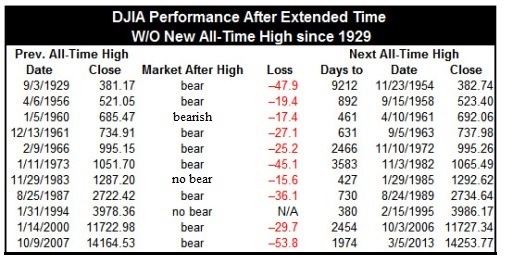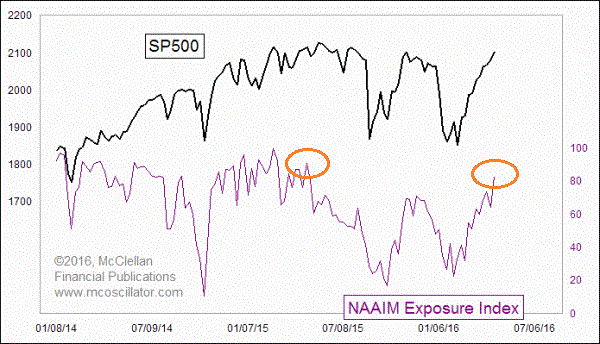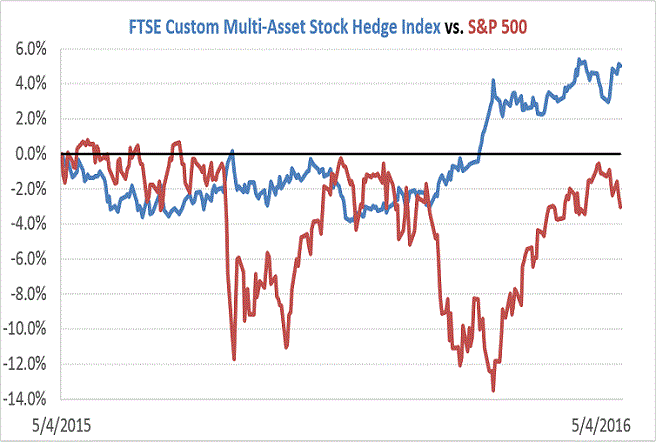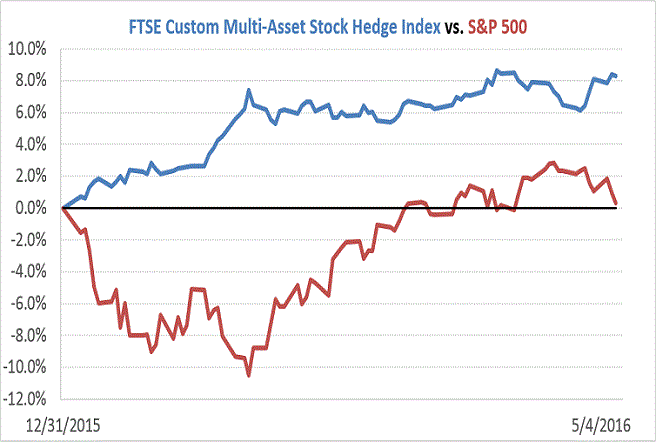One of the signs that a stock market may be transitioning from a bull to a bear? Participants dismiss exorbitant valuations, cast aside disturbing shifts in technical trends, disregard economic stagnation and scoff at historical comparisons. For instance, it has been 352 days since the Dow Jones Industrials Average registered an all-time record high in May of 2015. Since the 1920s, when the Dow has surpassed 350 calendar days without recovering a bull market peak, the index has dropped at least 17% on nine out of 11 occasions. On average, the Dow has succumbed to 30% bearish price depreciation.

Adding insult to injury here is that the Dow has failed to hold 18000 since it first notched the milestone back on December 23, 2014. That was 499 days ago. Equally compelling? Five days earlier (12/18/2014) marked the Federal Reserve’s final asset purchase in its third round of quantitative easing (QE3). In other words, the stock market has been unable to make any meaningful progress since the Fed stopped expanding its balance sheet. (Note: This also lends credence to research that attributes 93% of the current bull market’s gains to the Fed’s electronic credit/asset purchase interventions).
“Forget corporate earnings, sales, the global economy, technical analysis and history, Gary. You’ve got to be a contrarian here because this is the most hated stock market ever!” I’ve heard this clam dozens of times now. Ostensibly, a lack of excitement for stock assets should push stocks back to record heights and beyond. And there may be some truth to the declaration. After all, corporations have been the only “net buyers” for more than three months, as the other participants (e.g., pensions, hedge funds, “Mom-n-Pop” retail, institutional advisers, etc.) have been “net sellers.”
On the other hand, according to the National Association of Active Investment Managers, investment sentiment sits at its highest level since April of 2015. Putting that into perspective? A contrarian who recognized the uber-bullishness last year may have exited the market near the all-time record highs for the Dow and the S&P 500 in May of 2015. Similarly, we may once again be at a point where bullishness is overextended.

Granted, the S&P 500 might only need to rise 4% from current levels to register an all-time record. In and of itself, that is relatively impressive. Nevertheless, the year-over-year and year-to-date outperformance of the S&P 500 by the FTSE Multi-Asset Stock Hedge Index (affectionately known as “MASH”) is reason enough to be wary. We’re talking about the collective success of several key components like the SPDR Gold Shares (NYSE:GLD), Guggenheim CurrencyShares Japanese Yen (NYSE:FXY), PIMCO 25+ Year Zero Coupon US Treasury (NYSE:ZROZ) and iShares National AMT-Free Muni Bond (NYSE:MUB).


Three-quarters of S&P 500 corporations have reported Q1 2016 earnings. And according to the S&P Dow Jones Indices web site, as reported earnings estimates for the S&P 500 (3/31/2016) are now $87.48. The trailing twelve-month P/E? 23.4. “In the era of ultra-low interest rates,” you insist, “it simply doesn’t matter.” Well, then, perhaps you should investigate the four bear markets that occurred in the 20-year period (1936-1955) when the U.S. had similar 10-year yields, yet price-to-earnings ratios that were half what they are right now.
Here is one thing that should not be ignored. When precious metals like gold and carry-trade currencies like the yen outperform stocks over 5-6 months as well as one year – when long-maturity U.S. treasuries and Japanese government bonds are behaving in a similar fashion – “risk off” has the edge over “risk on.” Should you sell in May and go away, then? From my vantage point, just make sure you’ve got a comfortable cash/cash equivalent cushion to buy riskier assets at more attractive valuations down the road.
Disclosure: Gary Gordon, MS, CFP is the president of Pacific Park Financial, Inc., a Registered Investment Adviser with the SEC. Gary Gordon, Pacific Park Financial, Inc, and/or its clients may hold positions in the ETFs, mutual funds, and/or any investment asset mentioned above. The commentary does not constitute individualized investment advice. The opinions offered herein are not personalized recommendations to buy, sell or hold securities. At times, issuers of exchange-traded products compensate Pacific Park Financial, Inc. or its subsidiaries for advertising at the ETF Expert web site. ETF Expert content is created independently of any advertising relationships.
